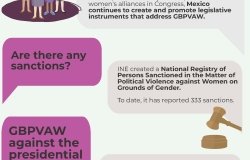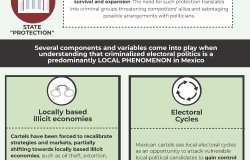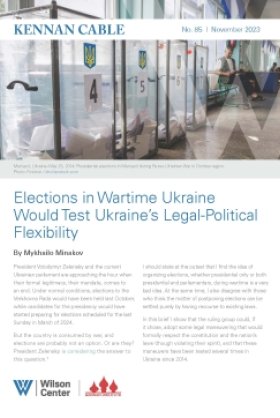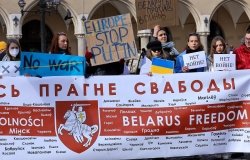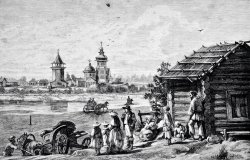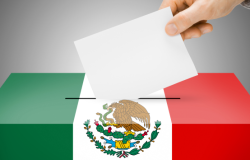An Incoherent Policy: Rule of Law Reform in Central Europe and Beyond
Stephen Humphreys's analysis of rule of law theory and practice identified a wide gulf between the theory and the manner in which "rule of law" is promoted abroad. Moreover, according to Humphreys, the extraordinarily ambitious rule of law promotion project has devolved into an incoherent policy because it is treated simply as a technocratic exercise, with few resources and little controversy.
Overview
Rule of law promotion has become a leading policy goal for external actors working in developing countries. The standard narrative is that developing countries should adopt a modern legal system and effective legal institutions in order to achieve stability, fight corruption and attract investment, much like the countries of postcommunist Europe had done in the 1990s. Stephen Humphreys's analysis of rule of law theory and practice identified a wide gulf between the theory and the manner in which "rule of law" is promoted abroad. Moreover, according to Humphreys, the extraordinarily ambitious rule of law promotion project has devolved into an incoherent policy because it is treated simply as a technocratic exercise, with few resources and little controversy.
Although rule of law promotion gained stature as a policy prescription in the postcommunist period, elements of the policy had been developed since the 1940s. Humphreys cited the focus on constitution-writing in the 1940s and 1950s, which offered an alternative to the colonial language once used by the West in developing countries. Later, the World Bank and the IMF implemented "structural adjustments" in developing countries in response to the debt crisis of the 1980s. These practices reappeared in 1989 under the "rule of law" rubric, as a means to aid countries transitioning from Communism to build economies that would be ready for private investment, Humphreys explained. By 2000, there was a proliferation of "rule of law" language throughout the United Nations agencies.
While transparency, predictability and judicial independence have become standard goals of development agencies around the globe, Humphreys argued that these policies share scant connection to the concepts developed by philosophers who detailed the relationship between law and society. The literature reveals that rule of law grows organically within a society, based on specific cultural and historical contexts, and cannot be designed from the outside. Rather than a template that can be copied, law is the outcome of the contract between state and society, Humphreys said, and therefore is dependent on the correct process and active consent by the people.
In practice, rule of law is promoted primarily by legal transplantation. External actors view the traditional institutional and legal structures as corrupt and outdated, and therefore encourage governments to adopt new laws and institutions in order to avoid being "left behind." Citing numerous reports documenting and measuring the success of rule of law promotion agencies, Humphreys painted a picture in which agencies were ambivalent about procedural rigor, focusing instead on the quality of the language of laws adopted, and bypassed legislatures when they were deemed problematic. Because deliberation was slow and costly, agencies determined that crisis was the ideal environment in which to conduct rule of law projects, when "changes can be made by the strike of a pen," Humphreys said.
Despite apparent success in some regions—especially in postcommunist Eastern Europe—Humphreys questioned whether rule of law policies have truly met their goal of creating stable and open societies. Through its instrumental approach to law, Humphreys argued, the international community was not engaged in the creation of the rule of law, but has produced the rule by law, in which externally imposed laws are policed and judged by newly-created institutions, but are not accepted by their societies. Humphreys argued that increasing poverty and income inequality may indicate that this mismatch between rule of law theory and practice may be undermining the entire project.
Written by Nida Gelazis, Senior Associate, European Studies
Christian F. Ostermann, Director, European Studies
Speakers
Hosted By

Global Europe Program
The Global Europe Program is focused on Europe’s capabilities, and how it engages on critical global issues. We investigate European approaches to critical global issues. We examine Europe’s relations with Russia and Eurasia, China and the Indo-Pacific, the Middle East and Africa. Our initiatives include “Ukraine in Europe” – an examination of what it will take to make Ukraine’s European future a reality. But we also examine the role of NATO, the European Union and the OSCE, Europe’s energy security, transatlantic trade disputes, and challenges to democracy. The Global Europe Program’s staff, scholars-in-residence, and Global Fellows participate in seminars, policy study groups, and international conferences to provide analytical recommendations to policy makers and the media. Read more

Cold War International History Project
The Cold War International History Project supports the full and prompt release of historical materials by governments on all sides of the Cold War. Through an award winning Digital Archive, the Project allows scholars, journalists, students, and the interested public to reassess the Cold War and its many contemporary legacies. It is part of the Wilson Center's History and Public Policy Program. Read more

History and Public Policy Program
The History and Public Policy Program makes public the primary source record of 20th and 21st century international history from repositories around the world, facilitates scholarship based on those records, and uses these materials to provide context for classroom, public, and policy debates on global affairs. Read more
Thank you for your interest in this event. Please send any feedback or questions to our Events staff.

